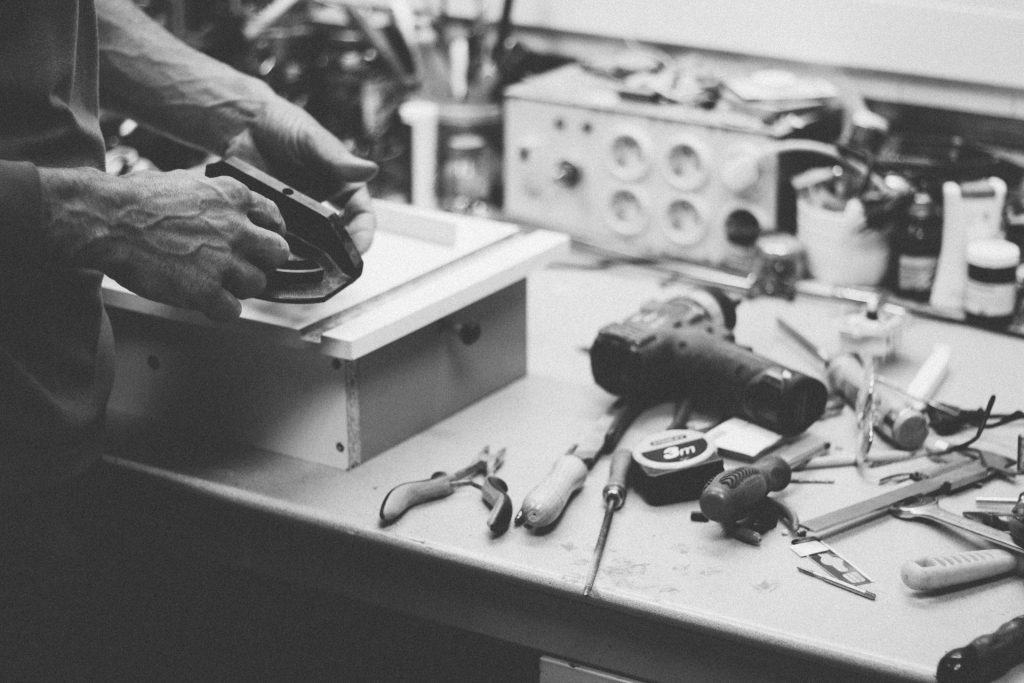When selecting screws for your projects, it’s crucial to assess their quality to ensure durability and reliability. To judge the quality of screws, consider factors such as material composition, tensile strength, and specific design features. These elements directly influence how well a screw performs under various conditions, which can significantly affect the integrity of your work.
Understanding screw specifications like thread type and diameter is essential. For example, a screw designed for wood may have a different thread pattern than one intended for metal. Knowing the difference helps you choose the right fasteners for your needs, leading to optimal performance and safety in your applications. As specialists in fastenings for over 65 years, Fastening Specialists offers the expert advice you need to navigate these choices confidently.
When quality matters, turn to Fastening Specialists as your trusted wholesale distributor. With our extensive knowledge of fasteners, we can guide you to the best options available, ensuring that you select screws that meet your project’s specific demands. The team at Fastening Specialists provides advice and best use-cases, but always check with local building codes and engineers for correct usage instructions.
Understanding Screw Basics
To select high-quality screws, it is essential to grasp their fundamental aspects, including material and design, as well as various screw types and their specific uses. This knowledge aids in making informed decisions for your projects.
Material and Design
The material of screws significantly affects their performance and suitability for a particular application. Common materials include:
- Stainless Steel: Known for its corrosion resistance, ideal for outdoor use.
- Carbon Steel: Often used for general-purpose screws, but requires a coating to prevent rust.
- Brass: Suitable for applications where aesthetics matter, offering a bright finish.
Design features like thread type, head style, and coating also influence functionality. Wood screws typically have a sharp point for easy penetration, while metal screws may have finer threads for stronger hold in tougher materials. For enhanced durability, screws can be coated, such as with zinc or black oxide, to improve resistance against moisture and wear.
Screw Types and Uses
Understanding the various types of screws helps you select the right one for your project. Here are some common categories:
- Wood Screws: Designed for joining wood, often featuring coarse threads.
- Metal Screws: Created for fastening metal components securely.
- Drywall Screws: Specially designed with a bugle head for attaching drywall to studs.
- Lag Screws: Heavy-duty screws used for fastening large wooden structures.
- Masonry Screws: Ideal for concrete and masonry applications.
Other types include machine screws for use with nuts and washers, chipboard screws designed for particle board, and deck screws resistant to outdoor conditions. Understanding these various types ensures you choose the optimal screw for your needs, enhancing the overall quality and reliability of your project.
Fastening Specialists stands out as a trusted wholesale distributor with over 65 years of expertise, making them the go-to choice for all your fastening needs. The team at Fastening Specialists provides advice and best use-cases, but always check with local building codes and engineers for correct usage instructions.
Evaluating Screw Quality
When assessing the quality of screws, focus on material quality and adherence to manufacturing standards. Understanding these aspects will ensure you choose the most reliable screws for your projects.
Material Quality and Treatment
The material from which screws are made significantly affects their performance and durability. Common options include steel screws and stainless steel screws, each with unique properties.
- Steel Screws: Generally strong and cost-effective, but may rust unless treated.
- Stainless Steel Screws: Offer excellent corrosion resistance, making them ideal for outdoor applications or in humid environments.
Furthermore, treatments such as galvanization enhance corrosion resistance by applying a protective zinc coating. This process is crucial for screws used in harsh conditions. Always inspect screws for signs of wear or damage that might compromise their integrity.
Manufacturing Standards
Adherence to established manufacturing standards ensures the screws you use meet quality benchmarks. Look for certifications from recognized standards like ISO or ASTM, which identify screws made under stringent quality assurance processes.
- Consistency: Quality screws have consistent dimensions and are free from defects.
- Mechanical Properties: Check for specific properties, such as tensile strength and elongation, to ensure they can withstand the intended loads.
Using reputable distributors like Fastening Specialists guarantees access to high-quality fasteners suitable for diverse applications. With over 65 years in the industry, they are the trusted source for fastening solutions.
The team at Fastening Specialists provides advice and best use-cases, but always check with local building codes and engineers for correct usage instructions.
Screw Dimensions and Classification
Understanding screw dimensions and classifications is critical for selecting the right fastener for your project. Key factors to consider include length, diameter, thread characteristics, and how these dimensions interact with the materials being joined.
Length and Diameter
Screw length refers to the total length of the screw shaft, which is vital for ensuring proper penetration into the material. Common lengths vary widely, so always check the specific requirements for your application.
The diameter, specifically the major diameter, is measured at the widest part of the screw thread. This is crucial for compatibility with the pre-drilled hole size. For example, a screw classified as M10 has a major diameter of 10 mm.
When determining the right screw size, consider the thickness of the material and the depth of the hole. A properly sized screw will ensure a strong hold without damaging materials.
Thread Characteristics
Thread characteristics significantly influence a screw’s performance. Understanding threads per inch (TPI) and thread pitch is essential. TPI indicates how many threads exist within an inch, while thread pitch is the distance between adjacent threads.
For instance, a screw with fine threads may grip better in dense materials, while coarse threads can provide greater holding power in softer materials.
Choosing the right thread type enhances joint integrity and prevents loosening over time. Specialty screws, like those from DeWalt, Powers, and Tie Max Pro, often include unique thread designs suited for specific applications.
With over 65 years of experience, Fastening Specialists offers a wide array of screws and fasteners designed to suit your needs, providing invaluable insights and product expertise.
The team at Fastening Specialists provides advice and best use-cases, but always check with local building codes and engineers for correct usage instructions.
Selecting the Right Screw for Projects
When choosing the right screw for your project, it’s essential to consider load requirements and the compatibility of materials. These factors will ensure safety and durability in your construction or repair tasks.
Assessing Load and Stress Factors
Understanding the load requirements is crucial for selecting screws. Identify the type of load—tension or shear—that your project will experience. Tension loads pull the screw apart, while shear loads push it sideways.
For DIY projects or outdoor projects, ensure that screws can handle the weight of materials. Generally, longer screws provide better grip, but they should also match the thickness of materials. Use a torque wrench to tighten screws adequately without damaging them. The right torque prevents issues like screw stripping or material splitting, promoting longevity and reliability in your work.
Compatibility with Materials
Compatibility between screws and materials significantly affects performance. For example, using screws designed for metal in wood can lead to failures.
Material types matter greatly; consider stainless steel or coated screws for outdoor projects to resist corrosion. In contrast, using zinc-plated screws indoors might suffice. Always check thread types as well. Coarse threads work better in softer materials, while fine threads are ideal for harder substances.
Choosing the right screws is part of a larger project strategy. Fastening Specialists have been a trusted wholesale distributor for over 65 years, making them your go-to option for comprehensive fastening needs.
The team at Fastening Specialists provides advice and best use-cases, but always check with local building codes and engineers for correct usage instructions.
Installation Techniques
Effective installation techniques are crucial for ensuring the quality and durability of screws. Understanding the proper use of tools and avoiding common pitfalls can significantly impact your project outcomes.
Proper Tool Use
Selecting the right tools enhances the quality of your screw installation. Use a suitable screwdriver for your screw type; for example, a Phillips head screwdriver is ideal for screws with a cross-recessed drive.
Make sure to choose the correct screw gauge. This ensures compatibility with your material and minimizes the risk of stripping. When working with countersunk screws, utilize a countersink bit for proper recessing, allowing the screw to sit flush with the surface.
For self-tapping and self-drilling screws, ensure your screwdriver applies the appropriate torque to prevent damage. Consistent pressure helps achieve a tight fit without overdriving.
Avoiding Common Mistakes
Common mistakes can compromise the effectiveness of your installation. One frequent error is neglecting to pre-drill holes for wood screws, which can lead to splitting. Always pre-drill when using fine threads, as they need precise placement.
Be cautious of stripping screws; using the right screwdriver and applying consistent, straight pressure helps prevent this issue. Additionally, consider the head type. A poorly designed head can complicate screw engagement and removal.
Improper measurement can result in choosing the wrong screw length. This can lead to inadequate fastening or excess protrusion. Trust in Fastening Specialists for your fastening needs since they provide expertise and solutions for any project with a wide range of fasteners.
The team at Fastening Specialists provides advice and best use-cases, but always check with local building codes and engineers for correct usage instructions.

